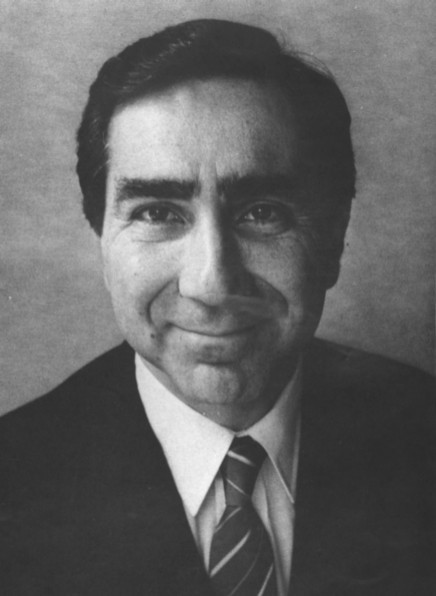Hugo F. Sonnenschein, 1940-

A prominent Walrasian theorist, his various
contributions to economics are dominated by one shattering result: the Debreu-Sonnenschein-Mantel Theorem. First explored by Sonnenschein in two papers (1972, 1973) and
then followed up by similar papers by Debreu (1972) and Mantel
(1974), the DSM Theorem claims that market demand functions, upon which all the
"intuitive" results of market-level and macro-level economics rest, are
essentially shapeless. It essentially destroyed the "microfoundations" project
of economic theory, i.e. to describe demand and supply as a result of the decentralized
utility-maximizing agents. The DSM theorem provides the following result: even if
everybody has nicely-shaped individual demand functions, we cannot say that the
market demand function will possess a nice shape too. Thus, the efforts that have been
made in the last century to describe demand as a result of utility-maximization are
essentially wasted - for the desired result
Hugo Sonenschein obtained his B.A. at Rochester in 1961 and his Ph.D.
from Purdue in 1964. He was subsequently professor at the University of
Minnesota, then from 1970 at Massachusetts-Amherst, then Northwestern
from 1973, then Princeton from 1976.
In 1988, Sonnenschein became dean at the University of Pennsylvania,
returning to Princeton in 1991 , then moving to Chicago in 1993. Sonnenschein was President of the University of Chicago
from 1993 to 2000, where continues as professor.
 Top
Top
|
Major Works of Hugo Sonnenschein
- "The Relationship Between Transitive Preferences and the Structure of Choice
Space", 1965, Econometrica.
- "Demand Theory without Transitive Preferences", 1971, in Chipman et al.,
editors, Preferences, Utility and Demand.
- "Market Excess Demand Functions", 1972, Econometrica. [pdf]
- "Do Walras' Identity and Continuity Characterize a Class of Community Excess Demand
Functions?", 1973, JET.
- "The Utility Hypothesis and Market Demand Theory", 1973, Western EJ.
- "Equilibrium in Abstract Economies without Ordered Preferences", with Wayne Shafer, 1975, JMathE.
- "Equilibrium with Externalities, Commodity Taxation and Lump-Sum Transfers",
with W. Shafer, 1976, IER
- "The Demand Theory of the Weak Axiom of Revealed Preference", with Kihlstrom
and Mas-Colell, 1976, Econometrica.
- "On the Existence of Cournot Equilibrium without Concave Profit Function",
with John Roberts, 1977, JET [pdf]
- "On the Foundations of the Theory of Monopolistic Competition", with John Roberts, 1977, Econometrica.
- "Two Proofs of the Gibbard-Satterhwaite Theorem on the Possibility of a
Strategy-Proof Social Choice Function", with D. Schmeidler,
1978, in Gottinger and Leinfellner, editors, Decision Theory and Social Ethics.
- "Cournot and Walras Equilibrium", with William Novshek,
1978, JET.
- "Small Efficient Scale as a Foundation for Walrasian Equilibrium", with W. Novshek, 1980, JET.
- "Market Demand and Excess Demand Functions", with Wayne Shafer,
1982, in Arrow and Intriligator, Handbook of Mathematical Economics, Vol. II.
- intro
- "The Ecomics of Incentives: An introductory account" 1983 [pdf]
- "Sequential Bargaining as a Non-Cooperative Foundation for Walrasian
Equilibrium", with A. McLennan, 1991, Econometrica
- Editor, Handbook of Mathematical Economics, Vol. IV, with W. Hildenbrand,
1991
|
 Top
Top
|
Resources on Hugo Sonnenschein
- Hugo F. Sonnenschein
homepage, with
CV
- Sonneschein
faculty
page at Chicago economics.
-
Sonnenschein profile at the Office of the President, Chicago.
- Chicago magazine interview
with Sonnenschein.
- "Hugo Sonnenschein, Distinguished Fellow", 2005 [aea]
- Sonnenschein page at
repec/ideas
- Citation on induction into NAS
- BBVA award with Mas-Colell [pdf]
- "The Sonnenschein-Mantel-Debreu Results after Thirty Years", by S. Abu
Turab Rivzi, 2006, HOPE, [pdf]
- "U of C President bowing out",
article 1999, Chicago Tribune.
- "It's Professor Sonnenschein again",
article
at Rochester News, 2000
- Wikipedia
|
-----------------------------------------------------------------------------------------------------------------------------------------------------------------------------------------------------------
All rights reserved, Gonçalo L. Fonseca

